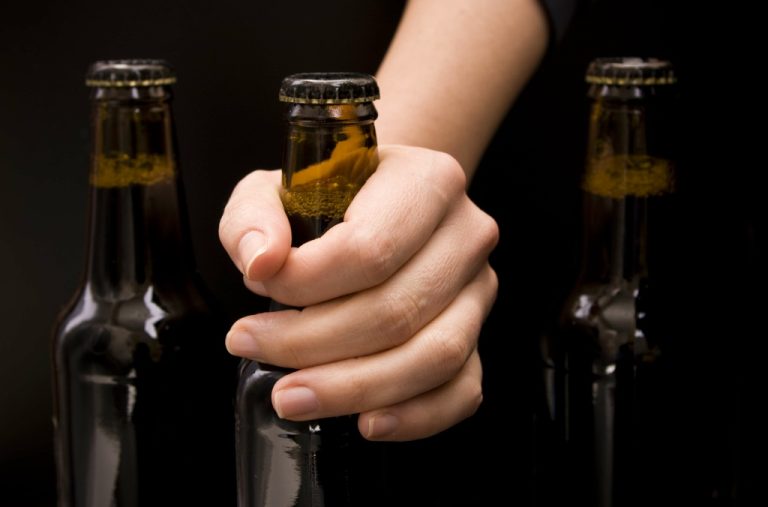7 Ways Excessive Drinking Can Cause Vision Problems
But other, less serious conditions also can cause blurry vision in just one eye. More-serious symptoms from heavy drinking may be a sign of alcohol poisoning — a life-threatening emergency. Alcohol poisoning is a serious and sometimes deadly result of drinking large amounts of alcohol in a short period of time. Drinking too much too quickly can affect breathing, heart rate, body temperature and gag reflex. A WHO (World Health Organisation) survey reported that 25% of workplace accidents and 60% of fatal accidents at work may be linked to hangovers.

How does alcohol affect the eyes and lead to blurry vision?
It may be nothing – but if it is something, acting fast could save your sight. But in recovery I had to remain in a seated, face-down position for three hours (known as posturing) to help keep the http://zarinkalaha.ir/18-powerful-memoirs-about-mental-illness-addiction/ gas bubble in place. Thankfully I wasn’t in pain – and my eye, though red, didn’t look too bad given what it had been through. For example, floaters in the eye – small specks drifting across your vision – aren’t cause for alarm in themselves. I reluctantly phoned two very good friends of mine – an eye surgeon and his wife, an optometrist – expecting to be reassured that their daft pal had nothing but a hangover.
Is blurry vision after a night of heavy drinking a temporary symptom, or can it have long-term effects on eyesight?
- Alcohol is a diuretic, meaning it increases urine production and fluid loss from the body.
- While occasional blurry vision after drinking is usually temporary and harmless, excessive and long-term alcohol consumption can lead to serious vision problems.
- However, these changes will go away once the alcohol has cleared the system.
- It can also lead to eye floaters, loss of vision in one or both eyes, and even the loss of color perception.
On the other hand, low blood pressure can cause the blood vessels to dilate, leading to similar visual disturbances. Additionally, taking breaks between alcoholic beverages can help prevent or reduce the occurrence of blurry vision. Pacing oneself and allowing the body time to metabolize the alcohol can help mitigate the effects it has on the optic nerve.
Empowering Australians to make better health choices
To prevent long-term effects on eyesight from heavy drinking, it is essential to consume alcohol in moderation and seek help if there is a struggle with alcohol abuse or addiction. Keep reading to learn more about how alcohol and eyesight are related and how to avoid complications from alcoholic eyes. Blurry vision after a night of heavy drinking is a relatively common symptom that many people experience.
Is it normal to have blurry vision after a night of drinking?
So, if you go from a dark room to a light room or vice versa, you’d have a lot of trouble adjusting to the new lighting. Otherwise, it will not affect your overall eye health, because it blurred vision hangover will go away once you sober up. However, while you are under the influence, it will cause you to lose depth perception. Some people are just more sensitive than others to the side effects of alcohol.

It can also lead to eye floaters, loss of vision in one or both eyes, and even the loss of color perception. It doesn’t happen often, but when alcohol is involved, you’re at a higher risk. But your body generally eliminates all the alcohol from your system after five to six hours, yet still remains adjusted to the presence of alcohol. Alcohol can direct heavier blood flow to areas in your pancreas known as islets. This causes your pancreas to make more insulin, which can make your blood sugar drop. At first, this can be beneficial, making you feel relaxed as your blood pressure is lowered.
Like double vision, if your bloodshot eyes do not revert back to normal after a night of drinking, then it might indicate a more serious issue and require medical attention. The optic nerve is in charge of sending impulses from the retina of the eye to the brain. Blurry vision is a common symptom experienced during a hangover, along with other discomforts such as headaches, nausea, and fatigue. While many people may attribute blurry vision solely to the effects of alcohol on the body, there are other factors that can contribute to this unpleasant symptom. Alcohol is a diuretic, meaning it increases urine production and fluid loss from the body.
Another condition that may contribute to blurry vision after alcohol consumption is macular degeneration. Macular degeneration is a chronic eye disease that causes the central portion of the retina to deteriorate. Alcohol is known to deplete certain nutrients, such as vitamin A, which are crucial for maintaining healthy vision. Therefore, individuals with macular degeneration may experience worsening vision after drinking alcohol. To avoid the detrimental effects of alcohol on the eyes, it is important to drink in moderation and be aware of the potential risks. If you notice persistent blurry vision or other visual disturbances after consuming alcohol, it is advisable to seek medical attention.
How drinking can affect your eyes in the short and long term
This helps replenish the fluid lost due to alcohol consumption and can provide relief to dry and irritated eyes. Additionally, consuming electrolyte-rich fluids such as sports drinks or coconut water can help restore the body’s electrolyte balance and further support hydration. It is essential to understand that the occasional instance of blurry vision after drinking alcohol is likely temporary and not a cause for concern. However, if blurry vision persists or worsens over time, it is important to seek medical attention.
- It doesn’t happen often, but when alcohol is involved, you’re at a higher risk.
- These factors can all contribute to the overall discomfort and disruption in the body’s normal functioning, including the eyes.
- Factors such as the amount of alcohol consumed, the frequency of consumption, and the individual’s overall health can all influence how alcohol affects the eyes.
- Drinking in moderation means limiting the amount of alcohol you consume in a single sitting.
- I reluctantly phoned two very good friends of mine – an eye surgeon and his wife, an optometrist – expecting to be reassured that their daft pal had nothing but a hangover.
This disruption in blood flow can further contribute to blurry vision during a hangover. Blurry vision during a hangover is heroin addiction often a result of dehydration and changes in blood flow. In conclusion, while alcohol consumption is a major contributor to blurry vision during a hangover, there are several other factors that can also play a role. Excessive alcohol consumption can negatively affect the eyes, leading to rapid eye movement, double vision, and potential blindness.

Having lunch later that day with my son, a young doctor, though not in ophthalmology – he insisted that any sudden change in vision needed to be checked immediately. The effect is still hard to explain, but it was as though I was wearing a pair of glasses with a smudge of dirt covering the top half of my vision in my right eye. Little wonder that on waking the next morning, with a slightly foggy curtain effect over my upper right eye, I just presumed the mix of booze and boogying was simply taking its toll.
Related Posts
Vaping vs Bongs: The Pros and Cons of Both from a Health Perspective
A few studies have shown that bongs indeed filter a significant amount of tar, toxinsRead More
Beer And Body Temperature: Why The Rise?
This happens because alcohol causes your blood vessels to expand, which is called vasodilation. VasodilationRead More
What does it feel like to be drunk? Effects and stages
In terms of alcohol tolerance, it is the ability to endure the effects of ethanolRead More
Comments are Closed